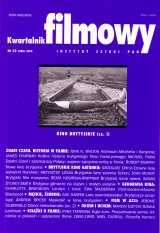Author(s): Anca Maria Rusu / Language(s): Romanian
Issue: 11/2010
The work of art is subject to many interpretations which at a certain moment can oppose one another in the process of making up the aesthetic object. Through its very essence, theatre is a dialogue among, through, with and about humans, it has always been the artistic form whose democracy comes from the specific communicational type of the performance hall. The aesthetic experience, unlike the practical one, has the advantage of being the only one capable to explain certain social conduct, to communicate social values, to clarify aspects of human existence. Theatre fills the minds, strains the conscience of the public, whose part in the recreation of the dramatic work during the performance goes beyond that of mere witness-condition. Thus theatre and public become accomplices. Therefore, the existence of the public represents one of the two sine qua non conditions for the theatrical act to take place. What does it mean, for a stage creator, to consider the audience? And which are, after all, the parameters of success? The favorable reaction of the public and the duration of the applause? The number of theatre goers attending each performance? The amount of cashing? Or, perhaps a laudative notice on the performance? Or, maybe, the tours and selection at certain festivals? Then a simple question occurs: what is public? This singularia tantum noun hides a dangerously ignored plurality which sometimes bears the meaning of a uniform mass, whose pulse can be easily taken by means of its own reaction, in praesentia, and which are often borrowed from another types of public manifestations. The viewer who is fond of theatre, who is informed about the theatrical movement of his real time (together with a more general artistic space-time), the holder of cultural memory, has the capacity to grasp intertheatrality, to compare one performance with another, the part played by an actor to the same part performed by another actor, and by means of all these to apply the criteria of interludicity to its own interception. The cultural memory of the public is the condition for understanding the performance. This very understanding is also supported by the Copybook-program of every performance, a guide mark which is responsible for fixing the "theatrical memory", within the history of a theatre, within the confrontation with the short life of the performance and the reaching of a sensitive target: the art of being a viewer. All these represent, in fact, the very purpose of the critical act. The necessity of the explanatory approach of what we call "commenting literature" represents an essential link in the dialogue of the artist with the public. The "ideal theatre goer" formula brings us to another question regarding the minority-or not- feature of theatre.
More...

